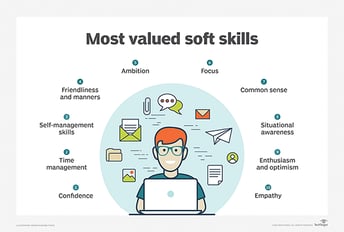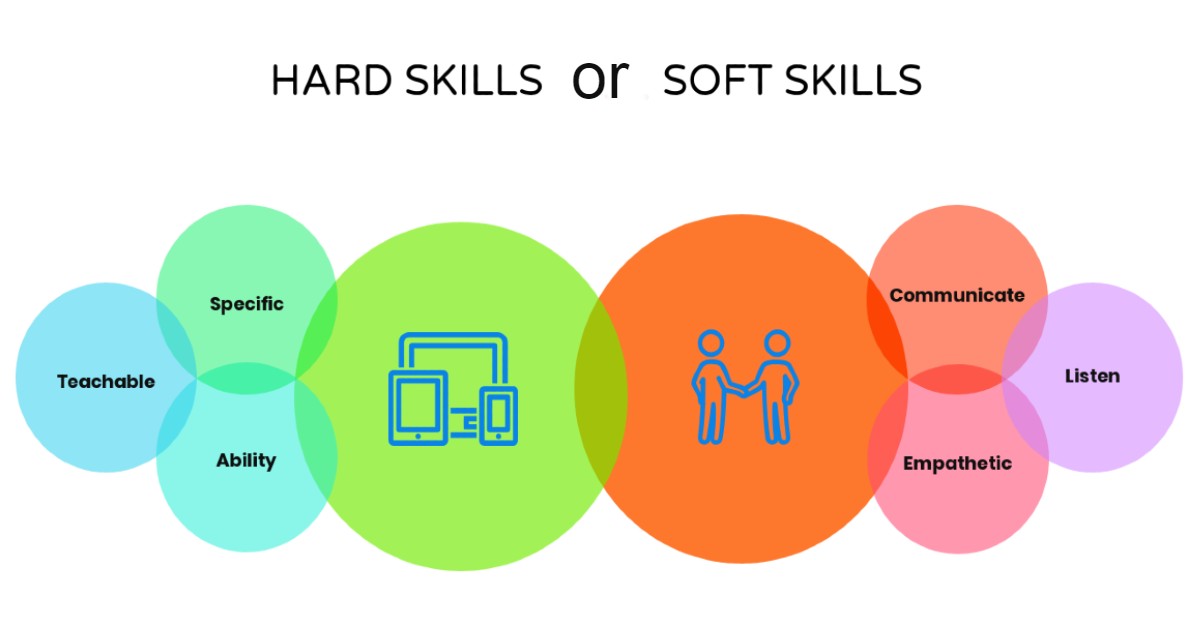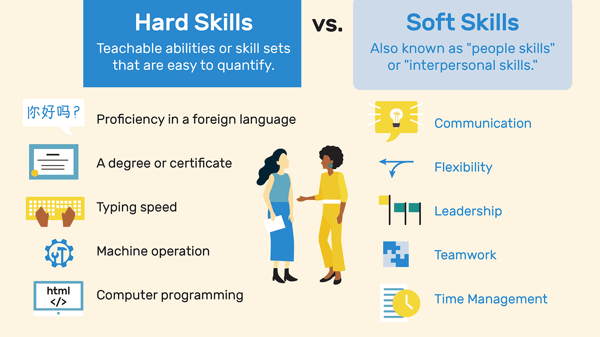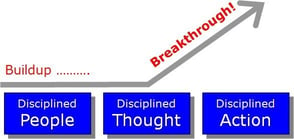 What’s the difference between hard and soft skills? Why is it important to develop both? Guest writer Frank Hamilton shares these important considerations.
What’s the difference between hard and soft skills? Why is it important to develop both? Guest writer Frank Hamilton shares these important considerations.
Hard and soft skills are skills anyone can benefit from. Many people lack these skills and even refuse to learn more about the topic. Here is the importance of learning hard and soft skills and how you can get started with this.
What Are Hard Skills?
 Hard skills are the technical skills you learn by training in specialized programs or schools. Such skills are often described as “teachable” and “transferable” even though, soft skills can also be taught. Most of the time, such skills are job-specific and require specialized training. Some popular hard skills include video production, analytical reasoning, and sales.
Hard skills are the technical skills you learn by training in specialized programs or schools. Such skills are often described as “teachable” and “transferable” even though, soft skills can also be taught. Most of the time, such skills are job-specific and require specialized training. Some popular hard skills include video production, analytical reasoning, and sales.
What Are Soft Skills?
Carrie Johnson from Online Writers Rating shares, “Soft skills are often described as interpersonal skills because  they are specific to an individual’s personality.” Indeed, soft skills are more personality traits than actual skills, though still considered as teachable skills. Some popular soft skills include creativity, patience, and problem-solving.
they are specific to an individual’s personality.” Indeed, soft skills are more personality traits than actual skills, though still considered as teachable skills. Some popular soft skills include creativity, patience, and problem-solving.
Why Do Both Matter?
What’s the point of these skills?
Why do they even matter?
Hard skills are necessary to perform certain tasks relevant to your job. If you don’t have any programming skills, you won’t be able to work as a programmer. Likewise, if you don’t know how to make shoes, you won’t be able to work as a shoemaker.
Why soft skills?
You may think knowing how to cook is enough to be a chef, that’s not exactly true. You need to know how to cook, manage an entire team of cooks, be a good leader plus have other soft skills such as organizational and communication skills.
Which Skills to Learn?
Heath Cranston from Writing Judge notes, “Though most hard and soft skills will be useful for you, there are some skills from each of the two groups that are more in-demand than others. Hence, you will benefit more from learning them first and using them as soon as possible.”
Some of the most popular and necessary hard and soft skills include:
- Hard Skills: Video production, sales, affiliate marketing, business analysis, UX design, scientific computing, Artificial Intelligence, analytical reasoning, cloud computing, and blockchain.
- Soft Skills: Emotional intelligence, creativity, adaptability, collaboration and teamwork, persuasion, leadership, problem-solving, patience, and motivation.

How to Combine the Skills?
Think about how you can combine these skills and apply them to your personal and professional life.
- Include Them on Your Resume: Instead of solely focusing on your hard or “technical” skills, talk about your soft skills too. Describe how you applied such skills in practice. For example, maybe you worked on a project where you had to use creativity extensively. Talk about your experience and describe what you were able to achieve.
- Use Them in Your Job Interview: While you can talk about them in your interview, you can also actually use them to demonstrate. For instance, communication and persuasion skills can help you do precisely that – persuade your potential employer to hire you by using all the necessary communication skills you possess. You can also run a demonstration of what you can do in programming to show your hard skills.
- Write About Them in Your Cover Letter: Your cover letter should attract attention. A cover letter can show your motivation and how your skillset makes you the best choice for a particular job position. That’s why writing about your hard and soft skills is a great idea – it’s exactly what a cover letter is meant for.
- Talk About Them While Networking: Talking about your hard and soft skills while networking may not seem like the best idea. Just remember to not sound like you are bragging. It can turn people off. Instead, integrate these into your conversations. For example, when someone mentions an experience, they had and you had something similar, go ahead and talk about that experience while mentioning what your actions were to reveal your skills. This way, you demonstrate your abilities by sharing your experiences as an example requiring your specific skills.

Final Thoughts
Learning hard and soft skills is equally important. Work at improving both to advance your career and the business you work for.
 Frank Hamilton has been working as an editor at essay review service Best Writers Online. He is a professional writing expert in such topics as blogging, digital marketing, and self-education. He loves traveling and speaks Spanish, French, German, and English.
Frank Hamilton has been working as an editor at essay review service Best Writers Online. He is a professional writing expert in such topics as blogging, digital marketing, and self-education. He loves traveling and speaks Spanish, French, German, and English.
To create an environment where everyone is inspired to give their best, contact Positioning Systems today to schedule a free exploratory meeting.
Growth demands Strategic Discipline.
 Building an enduring great organization requires disciplined people, disciplined thought, disciplined action, superior results, producing a distinctive impact in the world.
Building an enduring great organization requires disciplined people, disciplined thought, disciplined action, superior results, producing a distinctive impact in the world.
Discipline sustains momentum, over a long period of time, laying the foundations for lasting endurance.
A winning habit starts with 3 Strategic Disciplines: Priority, Metrics, and Meeting Rhythms. Forecasting, accountability, individual, and team performance improve dramatically.
-2.jpg?width=308&name=3%20Disciplines%20of%20Execution%20(Strategic%20Discipline)-2.jpg) Meeting Rhythms achieve a disciplined focus on performance metrics to drive growth.
Meeting Rhythms achieve a disciplined focus on performance metrics to drive growth.
Let Positioning Systems help your business achieve these outcomes on the Four most Important Decisions your business faces:
|
DECISION |
RESULT/OUTCOME |
|
PEOPLE |
|
|
STRATEGY |
|
|
EXECUTION |
|
|
CASH |
|
Positioning Systems helps mid-sized ($5M - $250M) business Scale-UP. We align your business to focus on Your One Thing! Contact dwick@positioningsystems.com to Scale Up your business! Take our Four Decisions Needs Assessment to discover how your business measures against other Scaled Up companies. We’ll contact you.
 NEXT BLOG – Scaling Up Compensation
NEXT BLOG – Scaling Up Compensation
Verne Harnish and Sebastian Ross combined to author Scaling Up Compensation: 5 Design Principles for Turning Your Largest Expense into a Strategic Advantage. It’s a thoughtful look at how companies design their culture to provide their business a unique strategic advantage. Can you? Discover how next blog






.jpeg?width=150&height=135&name=Hand%20with%20marker%20writing%20the%20question%20Whats%20Next_%20(1).jpeg)

